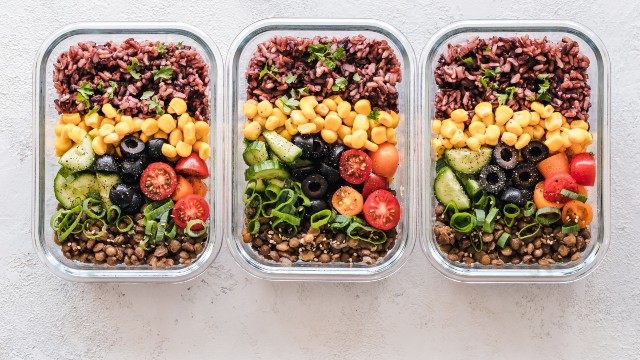Ditch the clingfilm and be kind to the planet

When food shopping opportunities are limited, more and more of us are having to plan ahead better for meals and store more food. But before reaching for the clingfilm, it’s worth considering the impact
More than 1.2 billion metres of plastic wrap is used by households in Britain every year – enough to go around the world 30 times! Clingfilm is hard to recycle and due to the way we use it, a lot ends up in our environment as litter.
But there are alternatives such as re-usable food tubs, bowl covers and beeswax wraps. Old takeaway containers and sauce jars can be re-used, or you can just pop a plate over the top of a dish to cover it in the fridge.
Re-usable lunchboxes and food containers (dig out that Tupperware from the back of the cupboard) are a great way to transport meals and snacks and they save money.
A campaign to boost more environmentally friendly ways of storing food is being launched this month by the Barnsley, Doncaster and Rotherham (BDR) Waste Partnership and Renwi, the firm behind the award-winning waste treatment facility at Manvers.
It is part of a wider campaign to encourage us all to re-use things rather than replace or throw them away, with different items we all use in everyday life coming under the spotlight every month
The social media campaign #ChooseDayisReuseDay will run every Tuesday throughout May with helpful tips and advice on how to store food in a safe but environmentally friendly way.
Community Education Liaison Officer, Abi Cox, who is based at Manvers, said: “Discarded clingfilm causes a major problem in the environment. It may save our sandwiches but it pollutes our planet. It’s not biodegradeable and when it ends up in the sea, it causes immense damage because fish can mistake it for food.
“There are lots of alternatives to use, it’s just a case of thinking differently about the way we store our food.”
Watch out for more re-use targets coming up including plastic bottles, cutlery and straws, school clothing, loose fruit and vegetable bags, tea bags and coffee pods, clothing and face wipes and toiletries.
Note to Editors: The award-winning waste treatment facility at Manvers processes around a quarter of a million tonnes of leftover waste a year from 340,000 homes across Barnsley, Doncaster and Rotherham, turning it into useful products rather than sending it to landfill.
For further information contact Abi Cox or Rebecca Wilson on 07814 302297 or abigail.cox@renewi.com or Rebecca.wilson@renewi.com